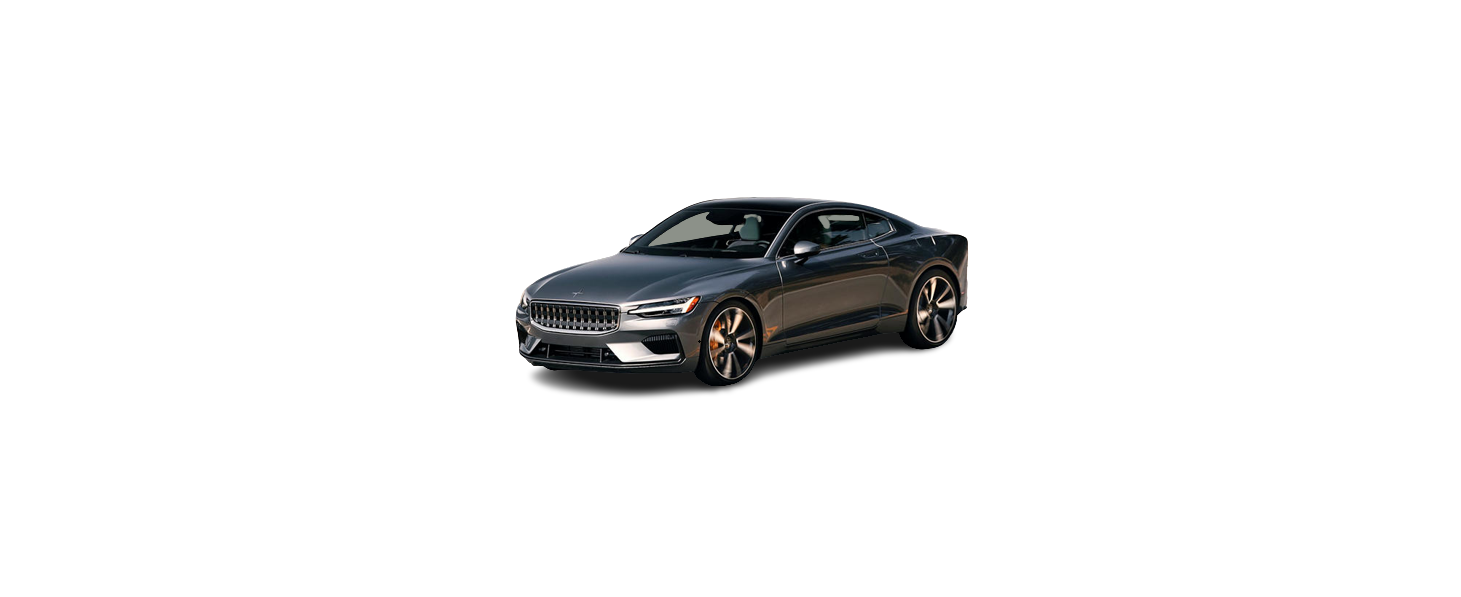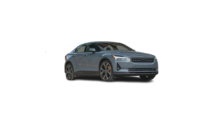Buckling seat belts
- If the seat belt is not already in the seat belt guide fitted to the front seats, open the belt guide at the head restraint, insert the belt and close the belt guide again.
- Pull out the belt slowly and make sure it is not twisted or damaged.
The seat belt is equipped with a seat belt retractor that will lock up in the following situations:
- if the belt is pulled out too quickly.
- during braking and acceleration.
- if the vehicle is leaning excessively.
- when driving in turns.
- if the automatic locking retractor/emergency locking retractor (ALR/ELR) is activated. Each seat belt (except for the driver’s) is equipped with an ALR function, which is designed to keep the seat belt taut when installing a child restraint. ALR is activated when the seat belt is pulled out as far as possible. If this is done, a sound from the seat belt retractor will be audible, which is normal. The seat belt can now only be fed into the retractor, not pulled out. This function is automatically disabled when the seat belt is unbuckled and fully retracted.
- Buckle the seat belt by pushing the latch plate into the receptacle.
> A distinct “click” indicates that the belt is locked into place.
Always insert the seat belt latch plate into the belt buckle on the correct side. Failure to do so could cause the seat belts and belt buckles to malfunction in a collision. There is a risk of serious injury.
- Check the belt is properly positioned in the seat belt guide for the front seats.
- The belt should be positioned in the belt guide and over the shoulder (not down over the arm).
The seat belt should always be placed in the belt guide. If the belt guide is not used, this may lead to serious injury.
- Tighten the lap section of the seat belt over the hips by pulling the diagonal section upward toward the shoulder.
- The lap section of the seat belt should be positioned low on the hips (not against the abdomen).
Never use a seat belt for more than one occupant. Never wear the shoulder portion of the belt under the arm, behind the back or otherwise out of position. Such use could cause injury in the event of an accident. As seat belts lose much of their strength when exposed to violent stretching, they should be replaced after any collision, even if they appear to be undamaged.
Do not use clips or fasten the belts around hooks or other parts of the interior. This will prevent the seat belt from fitting properly.
Never damage the seat belts and never insert any foreign objects into the belt buckle. This may cause the seat belts and belt buckles to malfunction in a collision. There is a risk of serious injury.
Unbuckling seat belts
- Press the red button on the seat belt receptacle and make sure the seat belt retracts fully into the retractor slot.
- If it does not fully retract, guide the belt manually into the slot and make sure it does not hang loose.
Never use the front seat belt guides for other purposes, such as hanging up objects or as handles when getting in and out of the vehicle.
Door and seat belt reminders
Graphics in the instrument panel
Graphics in the instrument panel with various types of warnings. The warning colors for the doors/trunk lid vary depending on the vehicle’s speed.
The instrument panel graphic shows the seats where seat belts are buckled and not buckled.
The same graphic also indicates if the hood, trunk lid, fuel filler door or any door is open.
Confirm the graphic by briefly pressing the O button on the right-side steering wheel keypad.
Door, hood and trunk reminders
If the hood, trunk lid, fuel filler door or any door is not properly closed, this will be indicated by a graphic in the instrument panel. Stop the vehicle safely and close the open door, hood, etc.
Resetting the electric seat belt tensioners
- Stop the vehicle in a safe location.
- Unbuckle the seat belt and then rebuckle it.
> The seat belt and the electric seat belt tensioner will be reset.
Never attempt to alter or repair the seat belt on your own. Contact Polestar Customer Support.
If the seat belt has been exposed to extreme forces, e.g. in conjunction with a collision, the entire seat belt must be replaced. Even if the seat belt appears undamaged, some of its protective properties may have been lost. Also replace the seat belt if it is worn or damaged. The new seat belt must be type approved and intended for the same seating position as the replaced seat belt.
Seat belt tensioners
Standard seat belt tensioners
All seat belts are equipped with a standard seat belt tensioner.
In a collision of sufficiently violent force, the seat belt tensioners will tension the seat belts in order to more effectively restrain the occupants.
Electric seat belt tensioners
The driver’s and front passenger’s seat belts are equipped with electric seat belt tensioners.
The seat belt tensioners interact and can be activated in conjunction with the City Safety driver support system. In critical situations, such as if the vehicle begins to skid or runs off the road (e.g if the vehicle rolls into a ditch or hits an obstacle in the road), or if there is a risk of collision, the seat belts can be pulled taut by the seat belt tensioner’s electric motor.
The electric seat belt tensioner helps to position the occupant more effectively in the seat, which reduces the risk of the occupant striking the interior of the passenger compartment and improves the effect of other safety systems such as the airbags.
When a critical situation has passed, the seat belt and the electric seat belt tensioner are reset automatically. However, they can also be reset manually.
If the passenger airbag is deactivated, the passenger-side electric seat belt tensioner may also be deactivated.
Never attempt to alter or repair the seat belt on your own. Contact Polestar Customer Support.
If the seat belt has been exposed to extreme forces, e.g. in conjunction with a collision, the entire seat belt must be replaced. Even if the seat belt appears undamaged, some of its protective properties may have been lost. Also replace the seat belt if it is worn or damaged. The new seat belt must be type approved and intended for the same seating position as the replaced seat belt.
Seat belts
Most states and provinces make it mandatory for occupants of a vehicle to use seat belts.
Seat belt maintenance
Check periodically that the seat belts are in good condition. Use water and a mild detergent for cleaning. Check the seat belt mechanism’s function as follows: attach the seat belt and pull rapidly on the strap.
- Never attempt to repair the belt on your own; contact Polestar Customer Support.
- Any device used to induce slack into the shoulder belt portion of the three-point belt system will have a detrimental effect on the amount of protection available in the event of a collision.
- The seat back should not be tilted too far back. The shoulder belt must be taut in order to function properly.
- Do not use any type of child restraint in the front passenger seat. We recommend that children who have outgrown these devices sit in the rear seat with the seat belt properly fastened.






